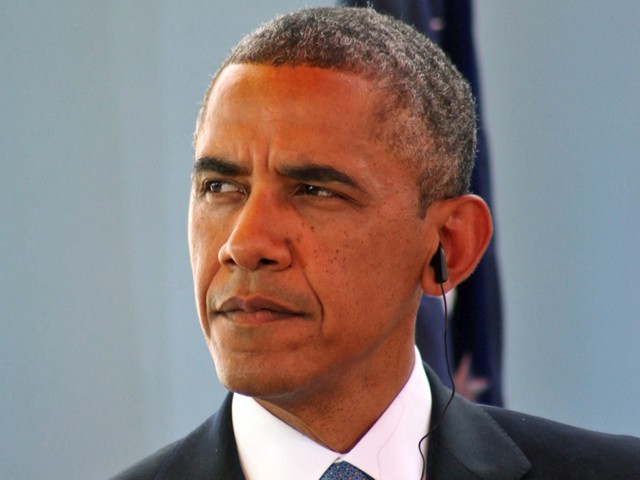Barack Obama has spoken up for gay rights in Africa, where gays are routinely discriminated against. Source: AAP
US President Barack Obama hit out at discrimination against gays in Africa and hailed the continent’s “amazing” progress and potential on Thursday on the first leg of a three-country tour.
But Obama had to struggle to keep his message of economic development and democratisation to the fore in Senegal, as Nelson Mandela’s fading health and a spy standoff with Moscow stole attention.
Crowds lined Dakar’s streets to see Obama’s motorcade and drummers heralded Obama at the presidential palace, suggesting locals, unlike many Americans, still cling to the “Yes We Can” optimism of his first term.
But controversies gripping Washington followed Obama to Africa and drew him onto delicate ground when he was asked by reporters about a US Supreme Court ruling on same-sex marriage in a country where homosexuality is a crime.
Obama, the son of a Kenyan, said he understood different religions and cultures prized distinct beliefs and traditions, but that the simple principle of equality should be the guide for states and governments.
“I want the African people to just hear what I believe,” Obama said.
“My basic view is that regardless of race, regardless of religion, regardless of gender, regardless of sexual orientation, when it comes to how the law treats you… people should be treated equally.”
Senegalese President Macky Sall replied that though Senegal was a “very tolerant country which does not discriminate in terms of inalienable rights of the human being”, it was not ready yet to decriminalise homosexuality.
“But of course this does not mean that we are all homophobic,” he added.
Obama said he still planned to head for South Africa on Friday, despite speculation that with anti-apartheid icon Mandela apparently close to death, his plans could be thrown into disarray.
The president said he was drawn into political activism by Mandela as a student, and had been inspired by his example in embracing his long-time captors in a spirit of national unity.
“I think he is a hero for the world and if and when he passes from this place, one thing I think we will all know is, his legacy is one that will linger on through the ages,” Obama said.
White House officials haven’t definitively ruled out the idea that Obama could visit Mandela’s hospital room when he arrives in South Africa, but said they will defer to the ex-president’s family’s wishes.
Obama also said Thursday he would not wheel and deal with Russia to secure the return of fugitive US intelligence leaker Edward Snowden, who is holed up in limbo in Moscow airport.
But he appeared keen to bring the focus back to Africa.
“We’re here in Africa and I don’t want people to forget why we’re here,” Obama said.
“The fact of the matter is that Africa oftentimes is not focused on by our press and our leadership back home unless there’s a crisis.”
In between formal commitments, Obama paid a poignant visit to Goree Island, a potent symbol of the horrors of slavery.
Joined by wife Michelle, herself a descendent of slaves, and daughters Malia and Sasha, Obama stared out at the Atlantic Ocean through the “Door of No Return” at the island’s House of Slaves – the reputed last exit for thousands of manacled Africans destined for the New World.
“Obviously, for an African American, an African American president, to be able to visit this site, I think, gives me even greater motivation in terms of human rights around the world,” Obama said.
Author: Stephen Collinson
Publication: Herald Sun
Date: 28 June 2013

